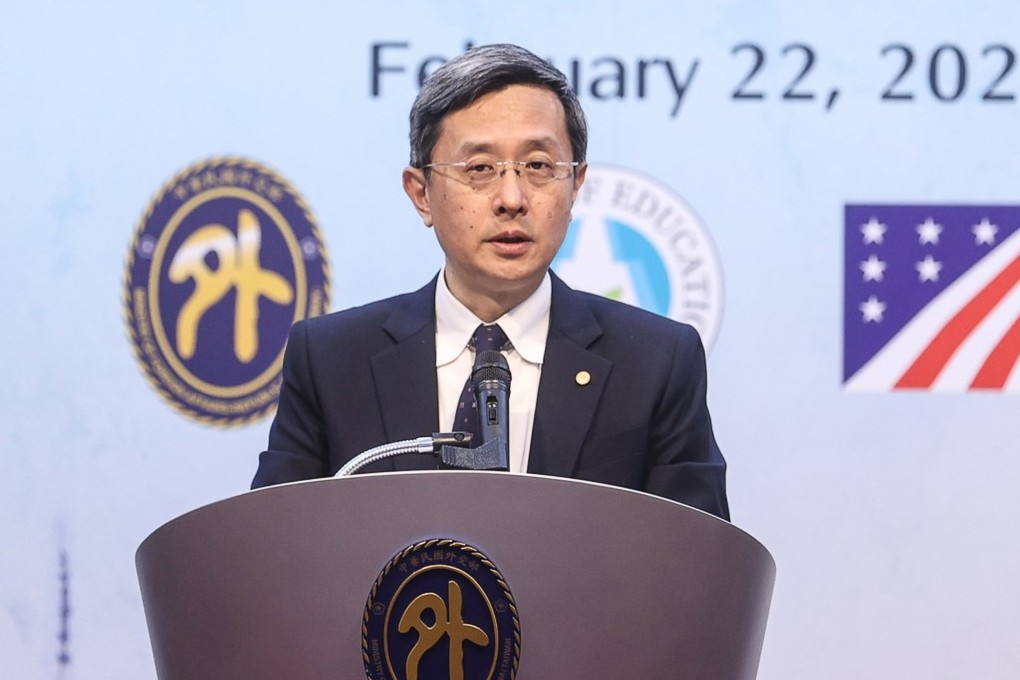Beijing will keep up intimidation, but little chance of a full economic blockade, Taipei official says
- Taiwanese vice-foreign minister Roy Chun Lee says Beijing will pay ‘lip service’ to economic siege, but price of imposing one is too high
- A shelved cross-strait trade pact is likely dead since it is ‘completely inconsistent’ with current economic order, he says

He added that there also seemed to be no chance of revising a cross-strait service trade agreement reached by Beijing and Taipei a decade ago.
Speaking to overseas journalists, Lee said Beijing was not likely to impose an extensive economic blockade against Taipei because such a move would also hurt the mainland.
“I think China will continue to talk about the possibility of an [economic] blockade” against the island, he said, adding that Beijing would continue to signal it would impose such an action to ramp up pressure on Taipei.
That would be the “cheapest way” for Beijing to suggest intimidation against Taiwan, Lee said.
“Historically a blockade is just a mile away from the military conflict,” he said, adding there were many “loopholes” to break such a siege. Lee did not elaborate.
